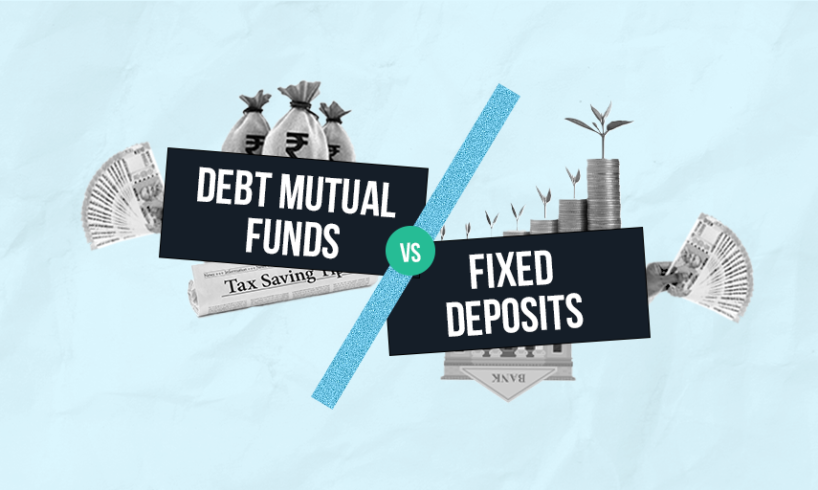
When it comes to saving for the future, Indians have depended heavily on traditional investment instruments like Debt Funds vs Fixed Deposits (FDs). However, changing market dynamics and increasing investor awareness have now paved the way for other diverse opportunities like Debt Funds. The question that arises here is, which is a better option when considering debt funds vs fd? Let’s delve deep into both these investment options.
Fixed Deposits (FDs) have been a preferred choice among Indian investors thanks to the security of capital and predictable returns they offer. A Fixed Deposit is a type of financial instrument provided by banks that serves an assured rate of interest over a specified length of time. The FD rates, however, vary from bank to bank and also depend on the tenure for which money is deposited.
On the other hand, Debt Funds are mutual funds that primarily invest in fixed income securities like bonds and treasury bills. Debt funds offer investors diversification in their portfolio and the potential for superior returns than fixed deposits over the long term.
Comparison between Debt Funds vs Fixed Deposits
Now, let’s weigh and compare both these options using several factors:
1. Returns:
While FD rates in 2024 may range from 5 to 7% p.a. depending on the bank and deposit tenure, returns on Debt Funds are not fixed and could hover anywhere between 6 to 9%.
2. Liquidity:
FDs usually come with a lock-in period, and premature withdrawal could attract penalties. In contrast, Debt Funds offer better liquidity as they can be redeemed within a day, barring some with lock-in periods.
3. Risk & Safety:
FDs are considered less risky as they are not affected by market fluctuations. However, the value of Debt Funds can fluctuate based on interest rate movements in the economy, but such funds are generally managed by skilled fund managers who actively manage this risk.
4. Tax Considerations:
Interest gained from FDs is fully taxable as per the income slab of the investor. In contrast, Debt Funds, if held for more than three years, are subjected to Long Term Capital Gains tax, which could translate into lower tax compared to FDs for those in the higher income brackets.
conclusion
In conclusion, although choosing between Debt Funds and FDs depends largely on individual goals, risk appetite, and investment horizon, a combination of both can also be considered for a balanced financial portfolio.
Debt Funds vs FD is a choice that must be made according to personal engagement and requirements. A financial advisor can help you understand these elements better and assist you to strategize your financial planning effectively.
Disclaimer:
Investment in the financial market is subject to market risks. This article does not constitute investment advice and investors are advised to do their own research or consult a certified financial planner before making any investment decisions.*
Summary:
The debate between Debt Funds and Fixed Deposits as ideal investment instruments is not uncommon. While FDs promise stability and assurance, Debt Funds bring in diversification and potentially higher returns. Fixed Deposits offer standard interest rates but may limit liquidity due to their fixed tenure and premature withdrawal penalties. On the other hand, Debt Funds may offer better returns and liquidity but at the cost of market-related risks. Lastly, taxation rules may tilt the scale in favor of Debt Funds, especially for those in higher income brackets. The choice between Debt Funds vs FD ultimately depends on individual risk appetite, financial goals, and market perception. Professional financial advice is recommended to guide these decisions.



